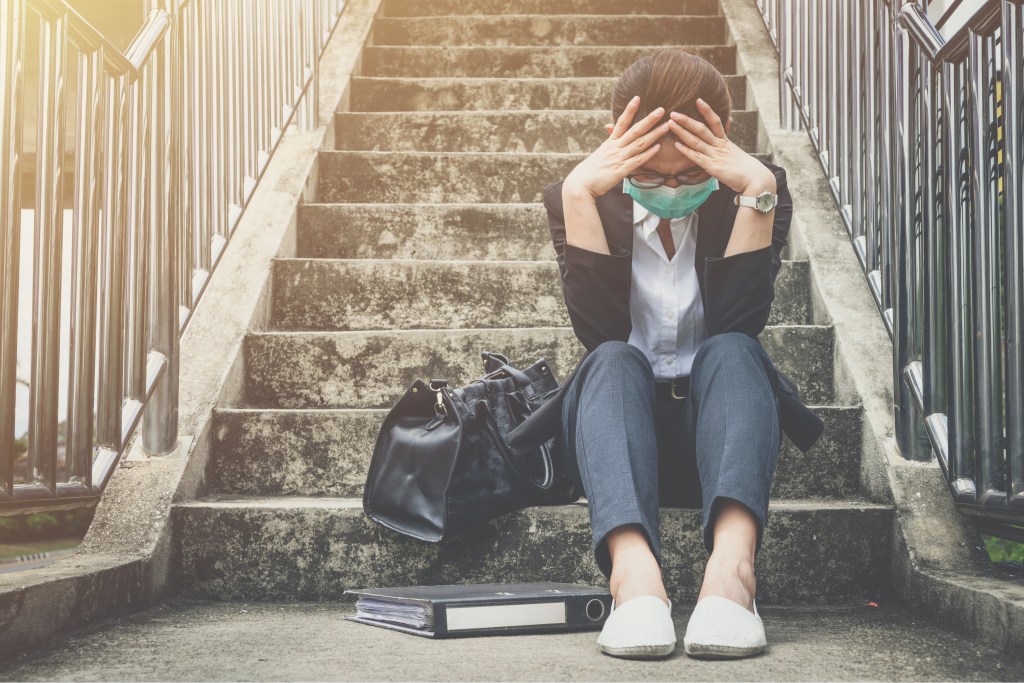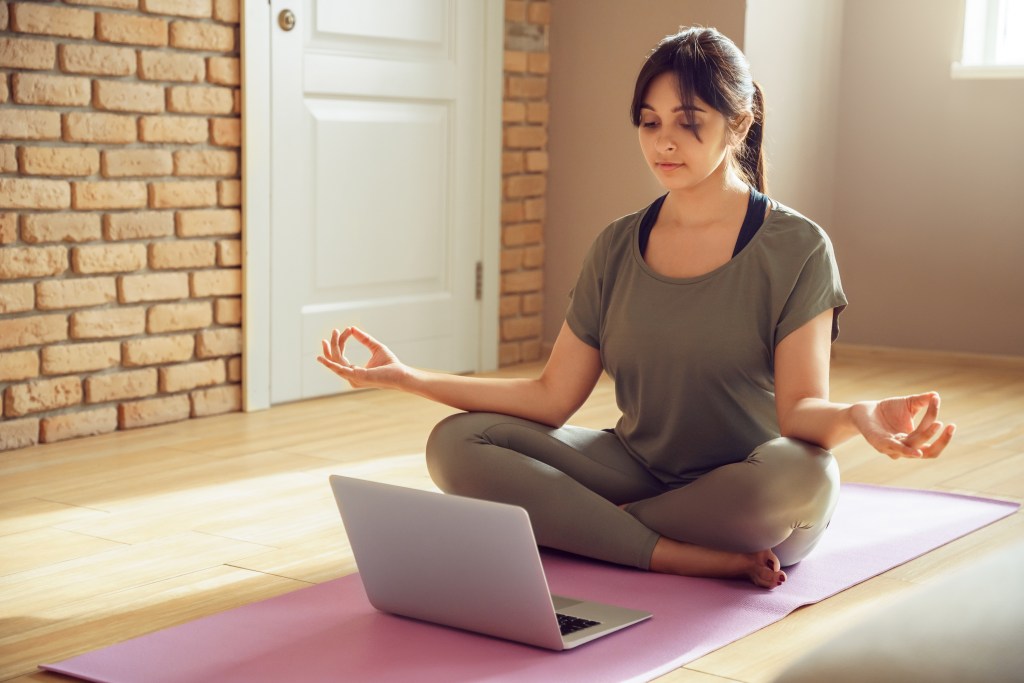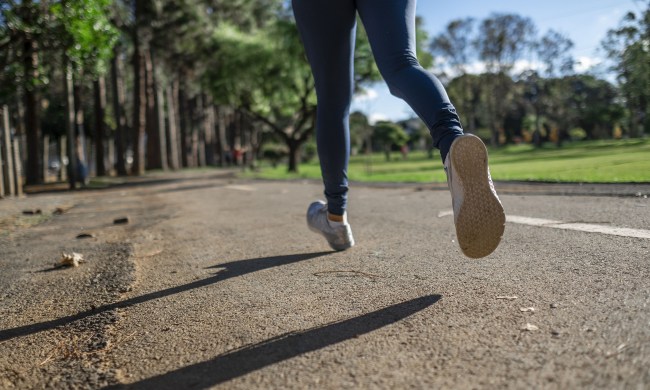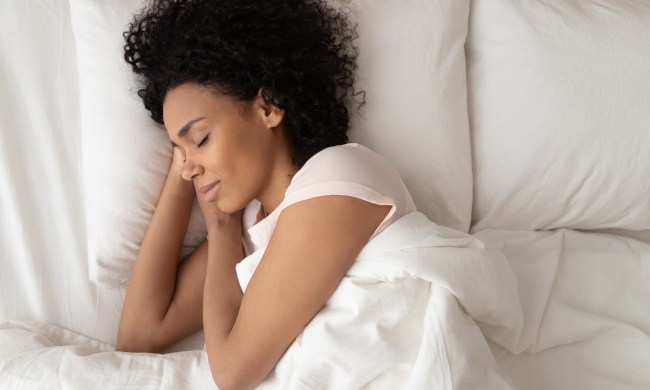If you’ve been noticing worsening PMS, irregular or heavy periods, or new or increasing mood changes since the start of the pandemic, rest assured that not only are you far from alone, but there’s also a very real biological reason for how you’re feeling. In an informal survey posted on Instagram in May by Anita Mitra, Ph.D., a London-based gynecologist who goes by the social media handle Gynaegeek, 65% of respondents said they had noticed a change in their menstrual cycles and hormonal symptoms since the start of the pandemic lockdown, with the doctor herself posting she was overwhelmed by the number of comments from women sharing their experiences.
Another recent study, not yet peer-reviewed, found that more than 52% of women had experienced a change in their menstrual cycle during the lockdown period, and more than half had experienced a change in psychosocial symptoms. The study also found that the reporting of increased stress or worry about family and personal health was significantly associated with changes in menstrual symptoms.
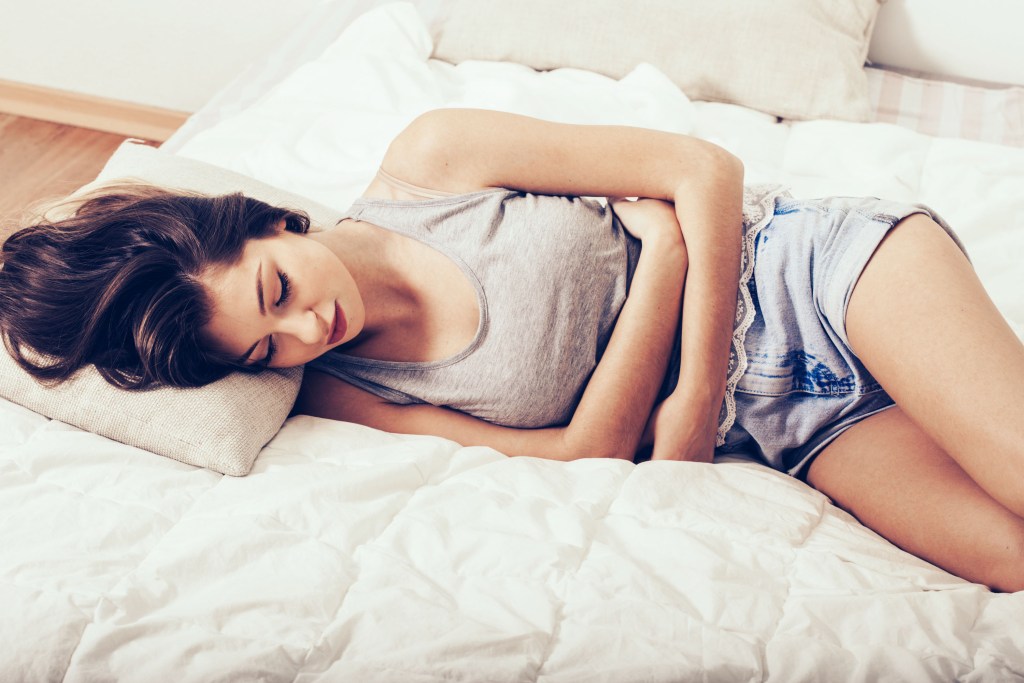
Dr. Maureen Whelihan, OB/GYN and director of Elite GYN Care of the Palm Beaches in Florida, says she’s seeing similar complaints in her own practice. “Last year, I noticed an uptick of about a 30% increase in the number of patient visits or tele-visits for things related to mood, such as PMS, premenstrual dysphoric disorder, or anxiety or depression disorders with symptoms increasing or relapsing,” she says.
Dr. Annemarie Vilkins, an OB/BYN with Henry Ford Medical Center in Detroit, says she also has had more patients coming to her with menstrual irregularities and increased anxiety and depression, and a good number of them had “normal periods” until last year. She says it’s not the pandemic to blame for the issues, but the stress the pandemic has caused.
“I also see a lot of health care providers as patients, who are prone to more stress than the general population,” she says. “It certainly makes sense that it’s all connected.”
The cortisol connection
While many women associate the “female” hormones estrogen and progesterone with menstrual and mood issues, when it comes to the pandemic, the stress hormone cortisol is really the culprit. To understand how cortisol affects the female body, you need to understand that your period starts not in your female organs, but in your brain, according to Vilkins.
In basic terms, the brain releases gonadotropin-releasing hormone, or GNRH, which travels to the pituitary gland and signals it to release follicle stimulating hormone, or FSH, and luteinizing hormone, or LH. These hormones then tell the ovaries to ovulate, and they in turn release estrogen and progesterone, which lead to a woman, if no pregnancy occurs, shedding her uterine lining, i.e., menstruation.
However, when stress causes cortisol levels to rise, any or all of these mechanisms can get thrown off, says Vilkins. “When cortisol is too high, it creates a negative feedback loop, and any or all of these steps can be affected,” she says. “That’s why you can have irregular spotting or go a long time without a period” or have a heavy period.
It’s important to know that cortisol itself isn’t a bad thing. It’s the hormone that kicks in for the “flight or fight” response that we might need if we, say, had to run from or fight off a loose tiger.
“Cortisol is our stress hormone and our sort of protection. It helps us react appropriately when there’s danger,” says Whelihan, adding that a surge in cortisol has an almost anesthetic effect that explains why some people who’ve been in bad accidents don’t remember feeling anything afterward.
However, cortisol is not supposed to stay elevated for long periods of time, and when that happens, such as in the case of being under prolonged stress, the body’s hormone pathways get thrown off. “An increased estrogen surge or prolonged high estrogen levels from elevated cortisol can build up the uterus lining, making it extra thick and leading to a heavy period,” says Whelihan. “Or ovulation doesn’t occur if estrogen and progesterone are thrown off, and there’s a chain reaction that results in irregular periods.”
“Your brain isn’t perfectly compartmentalized,” says Vilkins. “There’s not a space for stress, and a space for anxiety, and a space for your period. They are all interconnected and throwing off the balance in one part can throw off the balance in all the parts.”
Take steps to reduce stress
If cortisol is the reason for increased or new menstrual and mood issues, then the answer is obviously to reduce stress — something that’s easier said than done, says Vilkins. However, that doesn’t mean that reducing stress is impossible. You may just have to change some of your habits or start new ones.
Whelihan says taking in persistent negative messaging about the pandemic can be a big cause of stress — something that was particularly enhanced at the height of the pandemic. “Every day, you hear about disaster and see images of bodies stacked in sheets,” she says. “The main factor is there’s just no relief. Even those with good coping mechanisms found it was impossible to stay on top of their ability to cope. It led to a steady stream of cortisol, all day, every day. You wake up and it starts again.”
It’s important to not inundate yourself with too much news, according to Vilkins. Instead, try exercising, doing yoga, meditating, or turning your devices off and getting a good night’s sleep, all of which have been proven to lower stress levels.
Even though the pandemic has made many ways we are used to coping with stress unavailable — be it going to the gym or having a glass of wine with friends — it’s important to find workable alternatives. “Being able to adapt to the current environment is incredibly helpful,” says Vilkins. “For the last year, I’ve worked out in my garage because I know it helps reset and balance my brain.”
If you can’t go to your usual hangout to commiserate with friends, a Zoom chat can still be a stress reliever. “Connecting with people virtually is never the same, but it’s better than nothing,” says Vilkins. “You need to do what you can.”
Signs it’s time to see your doctor
It’s also entirely possible that even despite your best efforts, you continue to experience problems with your menstrual cycle or mood and need to seek a doctor’s help. Vilkins says if you’ve always had normal periods and only have one or two irregular cycles, there’s no need to see your OB/GYN. However, if it’s been three months or more of things being out of whack, or if your periods have changed dramatically, it’s a good idea to make an appointment with your physician.
“This is particularly true if you have not had a period,” says Vilkins. “The lining of the uterus overgrows and this increases the risk of precancer or cancer of the uterine lining.” Low-dose birth control pills are one tool your doctor might use to stabilize menstrual issues, she adds.

If you’re experiencing mood changes, anxiety, or depression, it’s best not to wait to see your physician, says Whelihan. “Certainly, you should see your doctor when you start to feel unable to enjoy your day and are having more bad days than good,” she says.
Sleeping too much or not enough, having trouble falling asleep, not wanting to get out of bed, or not participating in the things you enjoy are all sure signs that you need to talk to someone, adds Whelihan. Often patients aren’t the ones that notice mood changes, but rather spouses, significant others, friends, co-workers, and children. Whelihan says often patients turn to her because they feel more comfortable talking to their OB/GYN, who they are used to sharing intimate information with, than a mental health professional. All her patients take a Patient Health Questionnaire-9 that measures depression signs as part of their iPad check-in.
“As a gynecologist, probably one-third of the things I address are related to mood,” she adds. “I always felt I was an excellent listener for mood disorders until the PHQ-9. I realized then that there is a whole other group who puts on a friendly face and covers it up.”
Whelihan says those are often the patients who will open up to her, sometimes breaking down in tears, once she mentions that the screening test has raised the possibility of a mood disorder. She says it’s important, especially in these trying times, not to stigmatize anxiety, depression, or other mood issues, and that sometimes a low-dose antidepressant is all that’s needed to make a world of difference for the patient.
“Keep an open mind and don’t look at admitting concerns about mood as negative or derogatory,” says Whelihan, adding that taking an antidepressant for a mood disorder is no different than a person with diabetes taking insulin or someone with a thyroid condition taking thyroid medications.
Last but not least, remember that — especially with widespread vaccinations — the time is coming when life will get back to the way we remember it before the pandemic hit. But, in the meantime, don’t be afraid to seek out your doctor if you aren’t yourself, says Vilkins.
“The biggest piece of advice I can give is to hang on,” says Vilkins. “We are going to get through this, and your health care provider is there to help you, so don’t hesitate to reach out.”
BlissMark provides information regarding health, wellness, and beauty. The information within this article is not intended to be medical advice. Before starting any diet or exercise routine, consult your physician. If you don’t have a primary care physician, the United States Health & Human Services department has a free online tool that can help you locate a clinic in your area. We are not medical professionals, have not verified or vetted any programs, and in no way intend our content to be anything more than informative and inspiring.
